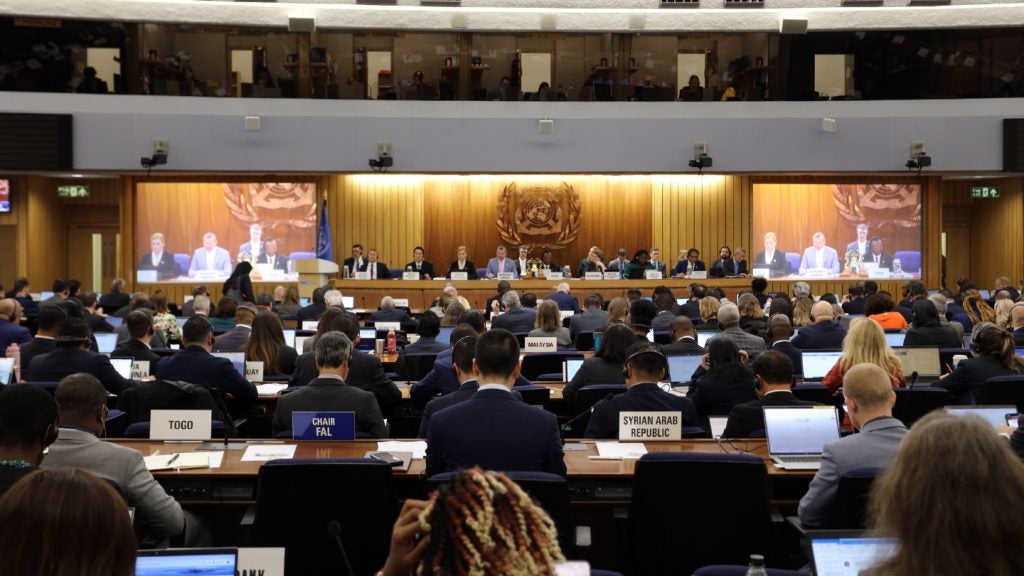The International Maritime Organisation (IMO) has outlined parts of its net-zero framework that will help achieve the goals set out in the 2023 Strategy on the Reduction of Greenhouse Gas (GHG) Emissions from Ships adopted last year.
The latest meeting of the Maritime Environment Protection Committee (MEPC 81) saw the publication of a draft outline illustration on a possible IMO net-zero framework including the proposal of a new Chapter 5 for the International Convention for the Prevention of Pollution from Ships (MARPOL).
An amendment to Annex VI of MARPOL could see the addition of the new chapter to include regulations on the adopted framework, including a goal-based marine fuel standard for the reduction of marine fuel’s GHG intensity and an economic mechanism to incentivise the transition to net zero.
MEPC 81 agreed on a number of next steps that will be taken before the next meeting, MEPC 82, in September 2024, including the publication of a comprehensive impact assessment on the proposed measures and the development of draft terms of reference for a fifth IMO GHG study.
The draft outline has largely been supported by the industry, including the International Chamber of Shipping (ICS) which particularly welcomed support from 60 member states for its proposal of a flat rate contribution system per tonne of GHG.
It added: “The purpose of the proposed system, put forward by the ICS, is to reduce the cost gap and incentivise the accelerated uptake of green marine fuels, as well as providing billions of dollars to support the maritime GHG reduction efforts of developing countries.
“We have gained a better understanding of the concerns of those governments who still have questions about our proposed feebate mechanism. ICS will seek to address these concerns with all governments before the next round of IMO negotiations in September.”
The progress made on the IMO’s framework, described by Secretary General Arsenio Dominguez as “very important” build further momentum for MEPC 82, where the organisation is expected to agree on a mix of economic measures and a fuel standard to meet the targets set out in the GHG Strategy.
Alongside setting a net zero goal for 2050, the strategy also lays out a number of interim targets for the shipping industry, including a GHG emissions reduction of 20-30% by 2030 and 70-80% by 2040.
Earlier this year Dominguez told journalists that the adoption of the strategy proved that the IMO was still able to bring its member states together, despite ongoing conflicts and disagreements about the best way to reduce emissions in the maritime industry.









